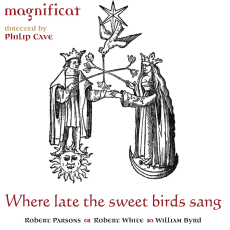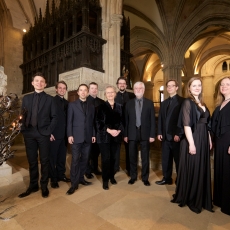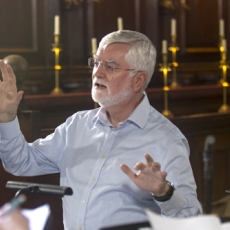Magnificat - Where Late the Sweet Birds Sang - All Music
The popular image of William Byrd hiding coded messages to his fellow Catholics in his music tends to obscure the fact that a good deal of music in Latin was written in Protestant 17th century England. The occasions for much of it remain a matter of debate. It is likely that Elizabeth I, especially toward the beginning of her reign, was tolerant of Catholics even other than Byrd, who enjoyed her protection for some years, and it may be, as Sally Dunkley points out in her excellent notes to this release, that she maintained a repertory of Latin music for the benefit of visiting potentates. At any rate, this is an interesting collection of pieces that nobody has brought together before, and it's gorgeously performed by the small adult choir Magnificat, under the direction of Philip Cave. If one is to judge from the graphics, the choir stood in a circle as it recorded. The album's title is taken from Shakespeare's Sonnet 73. Although composers Robert Parsons and Robert White died much younger than the long-lived Byrd (and it's not even known whether they, too, were Catholics), they were all born around the same time, and it's useful to hear Byrd's music in this context. A few pieces seem to have the powerful hidden Catholic messages present in Byrd's most famous works, but the rest of the music has a sober quality, as if the composers were reacting to the radical simplicity of Protestant music in English. The choir's quietly lyrical feel, quite different from the usual cathedral sound, works extremely well with this music. Linn's generally fine sound here ascends to the stratosphere, with superb clarity in the spaces of St. George's church, Chesterton, Cambridge. A true labor of love, this will appeal to everyone from serious scholars of the Tudor era to those who love radiant choral music, beautifully sung.


